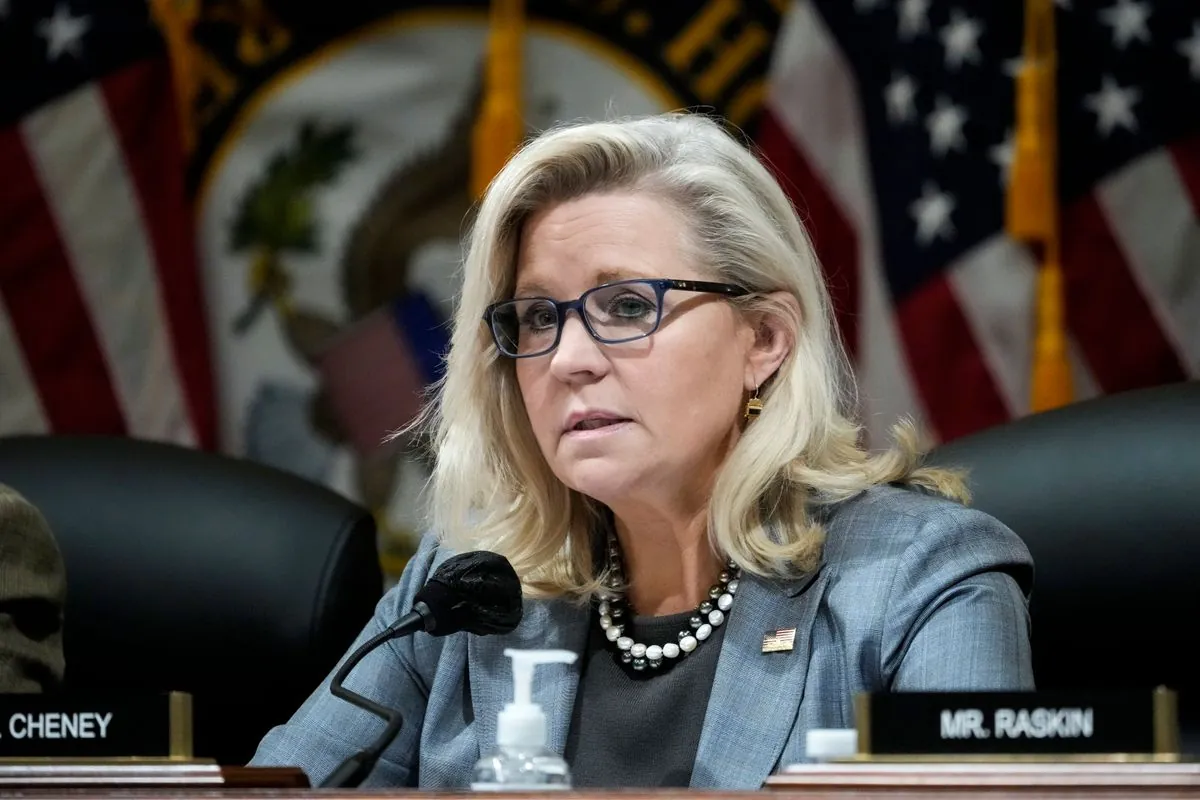Liz Cheney Breaks with GOP, Endorses Kamala Harris for 2024 Election
Former Republican congresswoman Liz Cheney announces support for Democratic nominee Kamala Harris in the upcoming election, citing the danger posed by Donald Trump. Cheney emphasizes the importance of not supporting write-in candidates.

Liz Cheney, former Republican congresswoman from Wyoming, has made a significant departure from her party's stance by announcing her intention to vote for Democratic nominee Kamala Harris in the upcoming November 2024 election. This declaration came during an event at Duke University's Sanford School of Public Policy on September 4, 2024.
Cheney explained her decision, stating, "As a conservative, as someone who believes in and cares about the Constitution, I have thought deeply about this. And because of the danger that Donald Trump poses, not only am I not voting for Donald Trump but I will be voting for Kamala Harris."
This move marks a notable shift for Cheney, who previously held the position of third-ranking Republican in the House. Her political journey has been marked by significant events, including her vote to impeach Trump for his role in the January 6, 2021, attack on the U.S. Capitol. At that time, she described Trump's actions as "the greatest betrayal by a President of the United States of his office and his oath to the Constitution."

Cheney's stance led to her removal from her role as chair of the House Republican Conference in May 2021. She continued to challenge Trump's false claims about the 2020 election, which further strained her relationship with the party. In 2021, she was appointed to the House Select Committee investigating the January 6 attack, serving as vice chair.
The political consequences of her opposition to Trump culminated in August 2022 when she lost her primary to a Trump-endorsed challenger by a significant margin. This loss ended her tenure as the U.S. Representative for Wyoming's at-large congressional district, a position she had held since 2017.
Cheney's political career has been notable for several reasons:
- She is the eldest daughter of former Vice President Dick Cheney.
- She served as the Chair of the House Republican Conference from 2019 to 2021.
- She was one of ten Republicans who voted to impeach Trump for his role in the January 6 Capitol attack.
- In 2022, she received the Profile in Courage Award from the John F. Kennedy Library Foundation.
The relationship between Trump and Cheney has been contentious. In July 2024, Trump shared a post on his social media platform, Truth Social, suggesting that Cheney was guilty of treason and calling for "televised military tribunals."
In her recent remarks at Duke University, Cheney emphasized the critical nature of the upcoming election, particularly in swing states. She stated, "I don't believe that we have the luxury of writing in candidates' names, particularly in swing states." This statement underscores her belief in the importance of strategic voting to prevent Trump from returning to office.
Cheney's decision to support Harris represents a significant moment in American politics, highlighting the deep divisions within the Republican Party and the ongoing debate about the future direction of conservatism in the United States.
"Because we are here in North Carolina, I think it is crucially important for people to recognize, not only is what I've just said about the danger that Trump poses, something that should prevent people from voting for him. But I don't believe that we have the luxury of writing in candidates's names, particularly in swing states."
As the 2024 election approaches, Cheney's endorsement of Harris may influence other conservative voters who share her concerns about Trump's impact on American democracy. Her actions continue to spark discussions about party loyalty, constitutional principles, and the evolving landscape of U.S. politics.


































